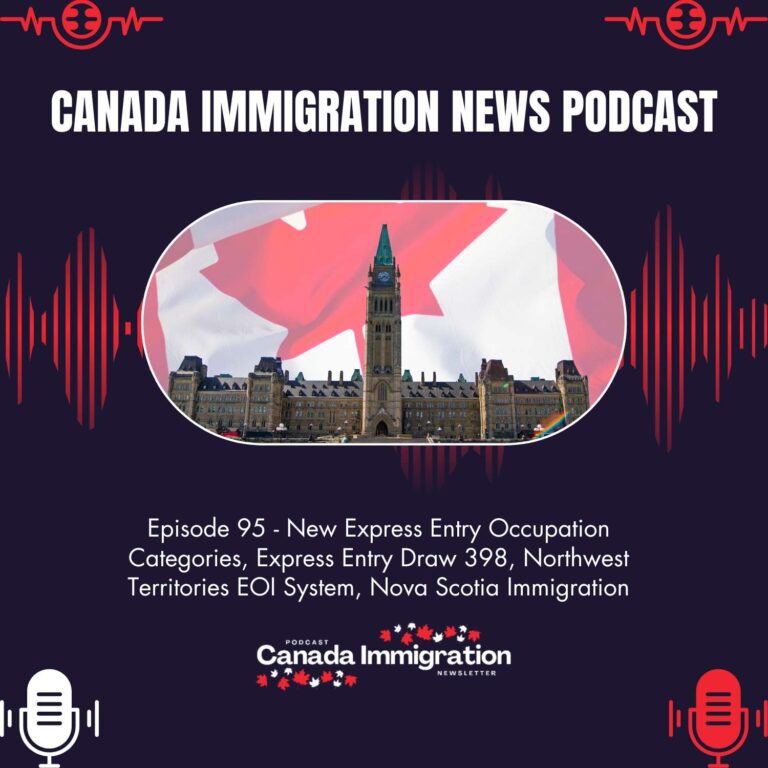Work in Canada
IRCC Removes C12 Exemption for Intra-Company Transferees

On October 3, 2025, Immigration, Refugees and Citizenship Canada (IRCC) introduced a major policy update affecting intra-company transferees (ICTs) under the International Mobility Program (IMP).
The update, though technical, carries significant implications for multinational employers, foreign executives, and skilled workers transferring to Canadian branches. In short, IRCC has deleted the C12 exemption under international agreements, reshaping how intra-company work permits are processed going forward.
If you are a business professional, employer, or HR head managing international staff transfers, this change matters. Let’s explore what’s been removed, what still applies, and how to adapt your applications under the revised IRCC framework for intra-company transferees in Canada.
What Exactly Changed in IRCC’s 2025 Update?
This recent adjustment follows the October 1, 2024, revisions to the Significant Benefit – Intra-Company Transferees policy under paragraph R205(a) of the Immigration and Refugee Protection Regulations (IRPR).
In its latest announcement, IRCC officially deleted instructions relating to:
Temporary Foreign Worker Program: Canadian Interests – Significant Benefit – Intra-Company Transferees – International Agreements (Exemption Code C12). This means that the C12 exemption no longer applies. It has been removed from IRCC’s policy instructions and cannot be used for new or pending intra-company transferee applications.
What Stays the Same: The Remaining Valid Exemptions
While C12 is gone, other valid exemption codes under R205(a) continue to apply. These include:
| Exemption Code | Category | Purpose / Focus Area |
| C61 | Canadian Interests – Significant Benefit | Applies to senior managers, executives, or specialized knowledge workers providing measurable benefit to Canada. |
| C62 | Reciprocal Employment | Covers reciprocal arrangements allowing Canadians to gain equivalent experience abroad. |
| C63 | Designated Intra-Company Transfers | Used for specific intra-company transfer scenarios aligned with Canada’s economic interests. |
So, while the international agreement-based C12 exemption is gone, intra-company transfers remain possible under the Canadian interests – International Mobility Program (IMP).
Why the Change Matters for Employers and Applicants
The removal of the C12 exemption represents IRCC’s continued effort to simplify and modernize work permit streams while ensuring that foreign transfers genuinely benefit Canada’s economy.
Here’s what this means for key stakeholders:
For Employers
- You can no longer apply under the C12 code for ICTs.
- All applications must now align with C61 / C62 / C63 frameworks.
- Compliance with the Significant Benefit criteria is now mandatory.
- Review your LMIA-exempt work permit strategies to prevent unnecessary refusals.
For Applicants
- Make sure your role qualifies under one of the remaining ICT categories.
- Supporting documents must clearly show the transfer’s benefit to Canada, for example, job creation, skills development, or economic contribution.
- Renewals or extensions previously filed under C12 must transition to the updated system.
The Rationale: Streamlining and Transparency in Canada’s Work Permit System
IRCC’s latest update aligns with Canada’s broader goal of maintaining clarity, consistency, and economic value across all temporary worker programs. By retiring older, overlapping exemptions like C12, Canada is focusing on a single, clearer framework where intra-company transferees are assessed under the “Canadian interests” stream.
This ensures that:
- Foreign workers entering Canada deliver a measurable benefit.
- Applications are processed under one transparent system.
- Employers have fewer redundant or conflicting pathways.
In essence, the move makes Canada’s work permit ecosystem more predictable and performance-driven.
How to Adapt Your Application Strategy Under the New Rules
If your business or client previously relied on the C12 exemption, here’s how to proceed effectively under the new intra-company transferee policy:
- Review Active Applications: Withdraw or modify any C12-based applications before resubmission.
- Determine the Correct Code (C61, C62, C63): Identify which exemption best fits your transfer case.
- Emphasize Economic Benefit: Ensure the documentation demonstrates the “significant benefit” the transfer provides to Canada.
- Engage a Licensed RCIC or Immigration Expert: Proper guidance can help structure your case in line with IRCC’s latest framework — minimizing delays or refusals.
Canada Remains Open to Global Business Talent
Despite these policy shifts, Canada continues to welcome skilled global professionals under the International Mobility Program. For multinational companies transferring key staff from executives to technical specialists, Canada remains one of the most accessible and business-friendly destinations. The country’s immigration system balances economic growth with talent mobility, allowing global firms to operate seamlessly across borders while contributing to Canada’s labour market and innovation landscape.
Adapting to the Future of Intra-Company Transfers in Canada
The removal of the C12 exemption marks a new phase in Canada’s International Mobility Program, one that emphasizes transparency, consistency, and measurable benefit. Employers and professionals must now structure their applications under the C61 / C62 / C63 exemptions, ensuring each transfer adds value to Canada’s economy and workforce.
FAQs: Intra-Company Transferee Policy Update 2025
Q1. What is the main change IRCC announced in October 2025?
IRCC officially removed the C12 exemption for intra-company transferees under international agreements.
Q2. Can I still apply as an intra-company transferee in Canada?
Yes, you can. However, you must now apply under C61, C62, or C63 codes within the International Mobility Program.
Q3. Does this affect pending C12 applications?
Yes. Pending or draft applications under C12 may be rejected unless refiled under the new valid exemption codes.
Q4. Who qualifies for C61 / C62 / C63 exemptions?
Executives, senior managers, and specialized knowledge workers whose transfers deliver significant benefit to Canada qualify.
Q5. Why did IRCC remove the C12 exemption?
To simplify processes, eliminate overlap, and ensure all ICT applications fall under a unified “Canadian interests” framework.























